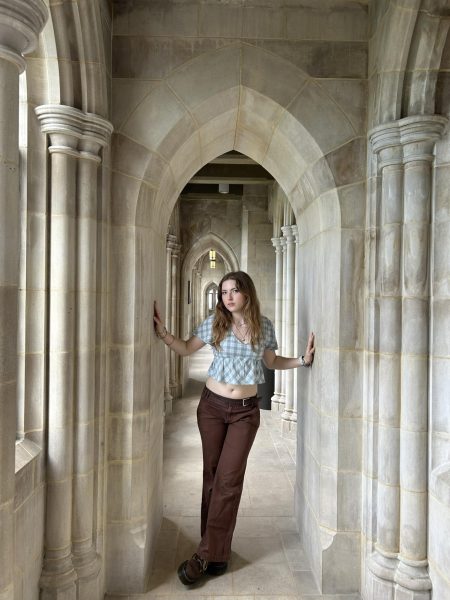Every winter the baseball team holds youth skill camps on five Sundays in January and February from 9:30am to 11am which are open to kids from kindergarten to eighth grade. The camp acts as the biggest fundraiser for the baseball program, and serves as an opportunity for them to build connections with the community youth and introduce them to the world of Annandale sports.
“Ever since I’ve been an assistant here under Coach Bagot going back six years ago, we have been doing the camps. [Now as the Head Coach], I continue in his tradition,” Head Baseball Coach Kevin Rudd said.
To get the message out about the camp, Rudd reaches out to the elementary and middle schools that feed into AHS, and sends updates through the AHS athletics weekly newsletter. Significant word of mouth has also contributed to their steady numbers over the years.
The camp is a great option for kids who have never played, little league players, and those transitioning into high school. It is not restricted to boys only either, the program is open to anyone and the program usually has two to five girls every year.
Hosted in the AHS main and auxiliary gyms, groups are formed based on grade level to ensure that all kids are relatively the same size and strength in each.
“I think it’s a good, fundamental builder and I think it’s actually good for the rest of Annandale sports to get a little headway on the season this way,” Andrew D’ambrogi said, the parent of a 5-year old participant and student coach.
In order to accommodate for the large age range of participants, the camp is not overly tiring, ending each practice at an hour and a half. In order to fit in as many drills as possible and keep the kids engaged and focused, the first two days of the camp focus on defense while the last three focus on hitting.
“Because the young kids don’t really have a whole lot of great motor skills, don’t understand their bodies or what you’re telling them, we slow down the drill explanations to make sure that they’re getting that foundation of what we’re trying to accomplish,” Coach Rudd explained.
“For the older kids, it’s a little bit more of a test to be perfectly honest. We’re trying to see how quickly they can move and adapt and pick up the drills. But of course, we’ll always do that to accommodate their skill level,” he added.
The large variety of drills make each practice very fun for the young players. When asked what his favorite thing about baseball is, three-year-old participant Ethan said: “I like feeling the ball on my bat.”
In addition to the four AHS baseball coaches that run the camp, six to seven AHS baseball players volunteer to coach as well, earning service hours from the experience. Their attendance is very helpful since being on different levels, some may need closer one-on-one help.
Junior Connor Delaney speaks about his experience coaching for the camp: “I like working with the kids, inspiring them, [and] teaching them fundamentals. It’s just really cool and a good environment with my friends.”
As a means of motivation for the student coaches a head counselor is chosen at the end of each session. Those who show the most dedication in learning the kid’s names throughout the day win the award. Coach Rudd encourages engagement between the student coaches and players to create a fun and friendly environment while making coaching easier. Additionally, the friendly competition adds to the team chemistry that is created through the coaching experience.
As mentioned earlier, one of the biggest goals of the camps is bringing a large amount of revenue for the team to provide players with a memorable and well-funded experience on the team. Each session costs $25, making a total of $125 for all five sessions, three of which were held on 1/12, 1/19, 1/26. Their last two sessions of the year will be held on 2/9 and 2/16.
A discount is offered to those who pay for all sessions upfront, at $110 in total. This money allows the team to buy new equipment, clothing, food and fund team-bonding activities.
However, overall, the purpose of the program circles back to the kids.
“I want them to have fun, because it should be fun and baseball is fun, and then at the end of day I just want them to come and get some good exercise, learn some skills from baseball and have fun with teammates, and classmates that maybe they don’t get to see very often,” Rudd said.






